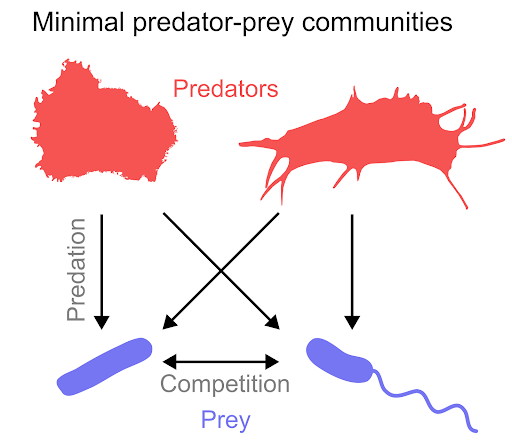
Jordi van Gestel
Group Leader
EditUnderstanding life in its natural context
Experimental coevolution of microbial predator-prey communities.
Coexisting microbes often coevolve: through direct or indirect interactions, microbes can affect each other’s ecology and hence evolution. For example, in soils, protozoan predation can drive rapid evolution of bacterial prey and trigger a predator-prey arms race. Despite the major importance of predation for soil functioning, it remains largely unknown how coevolution affects soil communities in time.

Here, we address this knowledge gap by performing a long-term coevolution experiment. By evolving a genetically-tractable synthetic soil community of protozoan predators and bacterial prey, we will for the first time quantify the impact of reciprocal adaptation on community composition, functioning and diversity.
Lees Group, EMBL-EBI Hinxton

Group Leader
Edit